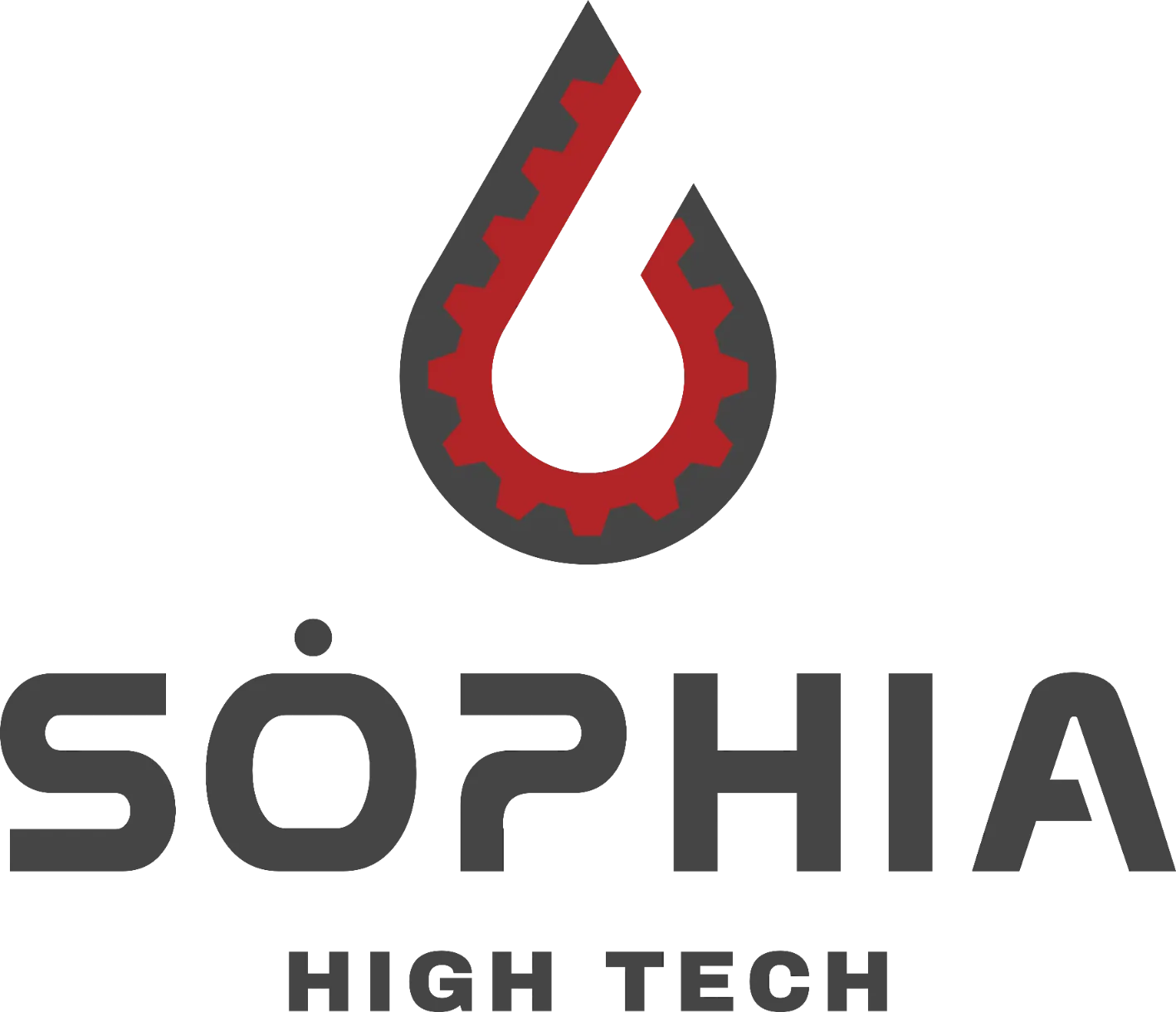In SOPHIA, the Industrial Research involves a close and programmatic cooperation with Universities, R&D Centers and innovative Companies in order to set-up, develop and realize optimized components for Aerospace, Defense, Automotive and Railway field.
The added value, in SOPHIA, is the integration of Additive Manufacturing with CNC Machining used to manufacture Complex Structures and Space Parts (Thrusters, Combustion Chambers and Nozzles).
POWMIX
Powder Mixing for
Additive Manufacturing
SOPHIA is strongly investing on the powder mixing, in order to customize performing alloys for Additive Manufacturing. POWMIX is a process to realize custom powders for Additive Manufacturing by advanced mixing.
The powders, of different materials, are loaded in a sealed reactor. Inert gas is blown into the chamber and the powders come into a fluidization status. Using an acoustic field, sized in frequency and amplitude, the flow is excited. In this way, the energy action win the interparticle attraction forces, providing a homogeneous powders mix. The new powder blend is then used as a feedstock material in the Additive Layer Manufacturing process. This process is useful to produce complex geometries, optimized in material behavior, using both standard powders and custom mixing according to technical requests. Finishing and mechanical coupling are guaranteed using CNC machining.
MATERIALS & METHODS
SOPHIA works with different materials in ALM, in order to manufacture metal Parts suitable for any advanced purpose.
Aluminium Alloys
[Al-Si10-Mg | Al-Si7-Mg | 7075/7050 Aluminum alloy | Scalmalloy ]
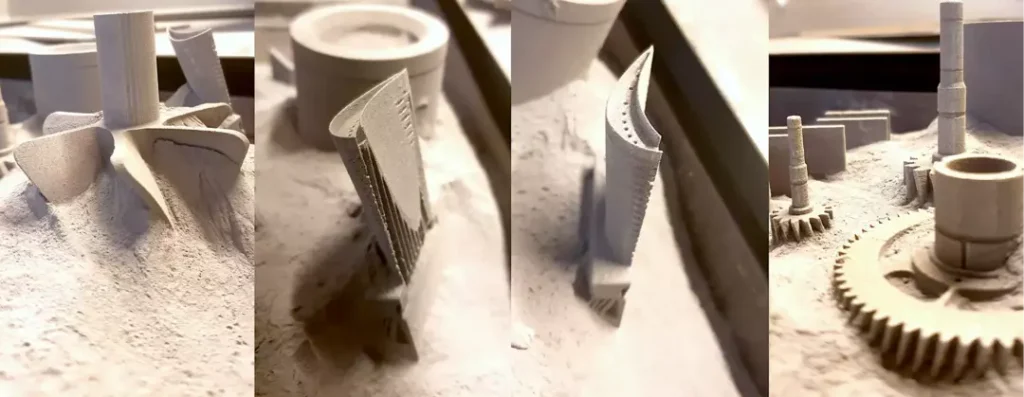
Are traditionally used in many industrial, aerospace and automotive applications. They possess high strength-to-weight ratios, and they also demonstrate good resistance to metal fatigue and corrosion. Due to the geometrically complex structures possible with additive manufacturing, further weight reduction is often possible with little or no compromise in strength and overall performance.
Titanium Alloys
[ Ti-6Al-4V Grade 5 | Ti-6Al-4V Grade 23 | Ti-6Al-2Sn-4Zr-2Mo | Ti-5Al-5V-5Mo-3Cr | Ti-48Al-2Cr-2Nb]
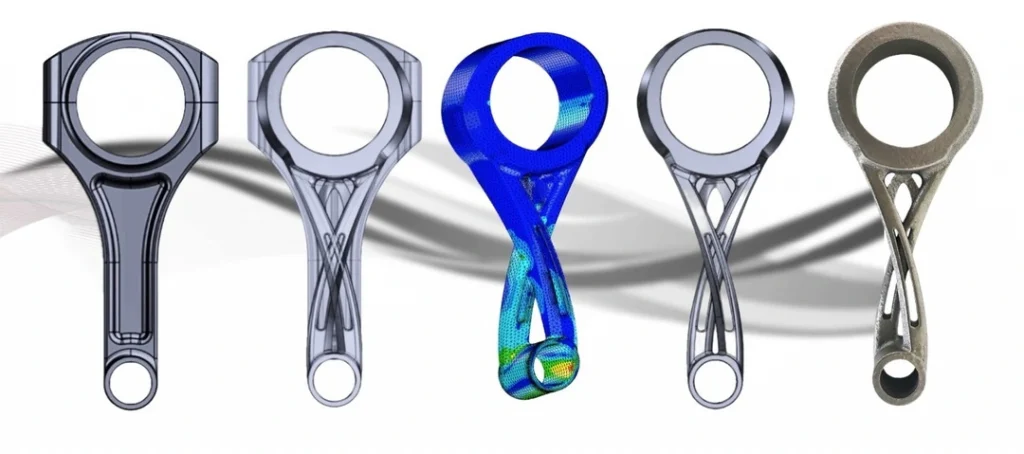
Used in additive manufacturing to produce a wide range of industrial components, including blades, fasteners, rings, discs, hubs and vessels. Titanium alloys are also used to produce high-performance race engine parts like gearboxes and connecting rods. Like cobalt chrome, titanium’s biocompatibility makes the metal a viable option for medical applications, particularly when direct metal contact with tissue or bone is a necessity.
Stainless Steel
[316L | M300 | 17-4PH]

Exhibits a number of mechanical properties favored in a variety of automotive, industrial, food processing and medical applications, including hardness, tensile strength, formability and impact resistance. SLM technology uses powdered stainless steel to produce dense, super-strong, waterproof parts for extreme environments like jet engines, rockets and even nuclear facilities.
Cobalt Chrome Alloys
[CoCrMo]
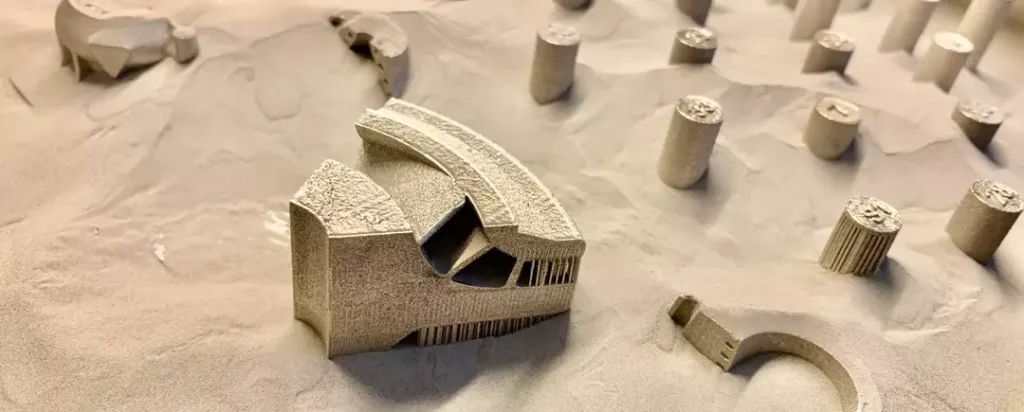
Used in additive manufacturing to print parts that often benefit from hot isostatic pressing (HIP), which combines high temperatures and pressures to induce a complex diffusion process that strengthens grain structures, producing fully dense metal parts. Medical field is suitable for these alloys.
Nickel-Based Alloys
[INCONEL 718 | INCONEL 625]
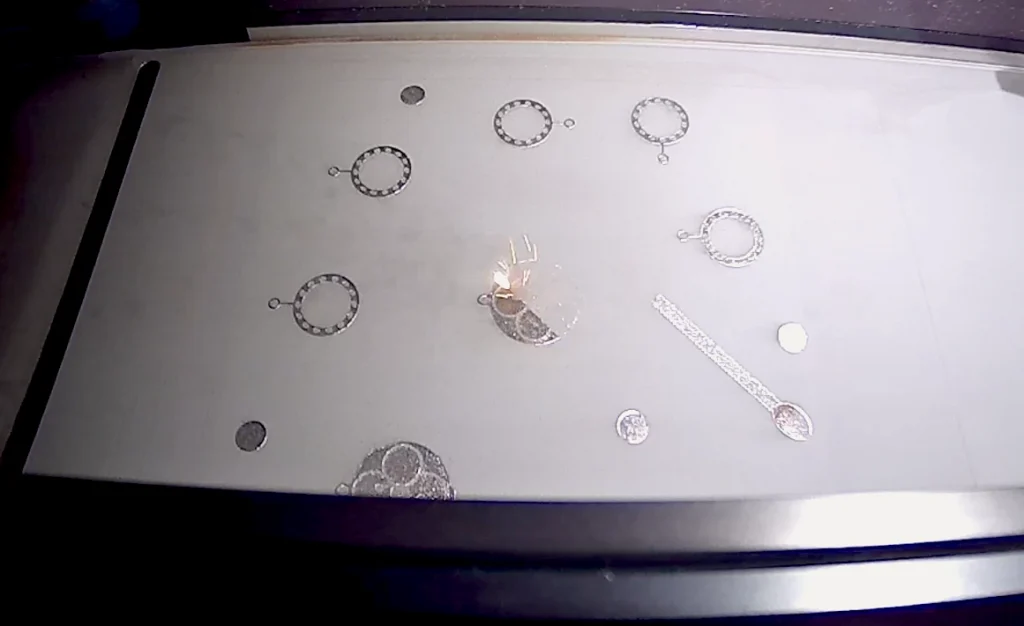
They produce strong, corrosion-resistant metal parts. These alloys are often used in high-stress, high-temperature aerospace, aeronautical, petrochemical and auto racing environments. The mechanical properties of nickel-based alloys used in additive manufacturing, such as Inconel 625, are considerably enhanced by the use of significant amounts of nickel, chromium and molybdenum in the metal. It resists pitting and cracking when exposed to chlorides. Inconel 718 is a metal that is also highly resistant to the corrosive effects of hydrochloric acid and sulfuric acid. It also demonstrates excellent tensile strength and good weldability.
Copper Alloys
[CuCr1Zr | CuCrZr | CuNi2SiCr | GRCop-84]

Using this copper alloy powder, high strength and wear resistant components can be printed. In comparison with pure Copper, components can stand higher temperatures and show a decreased tendency to tarnish. The material is used in electrical contact technology, as heat exchanger components and for induction coils. High thermal and electrical conductivity with good mechanical strength compared to other copper alloys.
SCIENTIFIC PAPERS, RELEASED BY SOPHIA HIGH TECH
- Influence of deposition parameters on hardness properties of Inconel 718 processed by Laser Powder Bed Fusion for space applications
- Effect of the Mixing Technique of Graphene Nanoplatelets and Graphene Nanofibers on Fracture Toughness of Epoxy Based Nanocomposites and Composites
- Experimental characterization of an Innovative Copper-Maraging Steel Metal-Matrix-Composite material for Liquid Rocket Engine Thrust Chambers by L-PBF Additive Manufacturing
- Influence of Deposition Parameters on Structural Properties of Inconel™ 718 Processed by Selective Laser Melting for Space Applications
- Reducing the energy density in Selective Laser Melting of an Al-Si-Mg-Cu alloy through an improved spreading process of the powder bed
- Investigation of the laser-related parameters in Laser-Powder Bed Fusion of Inconel 718- Cu blends at fixed volumetric energy density
- In Situ Alloying through Laser-Powder Bed Fusion of a 60%Inconel718-40%Cu Powders Mixture
- Experimental Setup for Fatigue Testing of Additively Manufactured Specimens
- Laser-Powder Bed Fusion of Inconel 718 Alloy: Effect of the Contour Strategy on Surface Quality and Sub-Surface Density
- An integrated approach to investigate the energy consumption for manufacturing and surface finishing 3D printed Inconel 718 parts
- Lattice structures in Stainless Steel 17‐4PH manufactured via SLM: dimensional accuracy, satellites formation, compressive response and printing parameters optimization
- On the effect of the layer thickness in Laser-Powder Bed Fusion of pre-mixed Inconel718-Cu powders
- Manufacturing Of Aluminum Coating On 3D-Printed Onyx With Cold Spray Technology
- Fused Filament Fabrication Of ONYX-Based Composites Coated With Aluminum Powders: A Preliminary Analysis On Feasibility And Characterization
- On the Influence of Manufacturing Strategy of 3D-Printed Polymer Substrates on Cold Spray Deposition
- Selective laser melting of an Al-Si-Mg-Cu alloy: feasibility and processing aspects
- Selective laser melting of Cu-Inconel 718 powder mixtures
- Influence of SLM parameters on the compressive behavior of lattice structures in 17-4PH stainless steel
- Feasibility of steel powder deposition on composites through cold spray
- Cold spray process for the production of AlSi10Mg coatings on glass fibers reinforced polymers
- Experimental Investigation on the Mechanical Behaviour of Natural Fibre Sandwich Panels with POSIDONIA Core
- Experimental Study of Cold Sprayed Metallic Coatings on Thermoplastic Matrix Composites
- Experimental Study of Functionalized Polymer Matrix Composite with Multi-Material Metal Coatings Produced by Means of Cold Spray Technology
- Heat Treatment of Inconel Selective Laser Melted Parts: Microstructure Evolution
- Deposition of Aluminum Coatings on Bio-Composite Laminates
- Low velocity impact and Compression After impact Behavior of Natural Fibers based Sandwich Composite Panels
- A numerical/experimental study on the induction heating of adhesives for composite materials bonding
- On The Microstructural Analysis of LFW Joints Of Ti6Al4V Components Made Via Electron Beam Melting
- Numerical modelling of composite stack drilling process
- Influence of Eta-Phase on Wear Behavior of WC-Co Carbides
- Validation of a FEM model for the simulation of the cold roll forming process
- Rheological characterization and finite element modeling of an extrusion process of a WC–Co compound
